Hello from the Treasure State! My name is Quincy Balius, and I am the Outreach and Education Archives and Libraries intern for the Ohio History Connection. Currently, I am a master’s student and graduate teaching assistant in American Studies at Montana State University. In my research and teaching, I am focused on making history accessible and relevant to the public as well as including diverse voices from the past.
When I was first hired as an intern, my task was to host, moderate, and promote the “Where My Single Folk?” genealogy workshop series. Over the course of my internship, I added several more projects to my plate, including editing and contributing to the American Indian Research Guidelines document and website, developing an LGBTQ+-centered list of cataloguing terms, creating educational activities for the Ohio as America digital textbook, and blogging for the Ohio History Connection History Blog.
My internship was not a standard one. I was hired in June 2021, amidst the global COVID-19 pandemic. I currently live in Bozeman, Montana, and my internship has been entirely remote. Rather than going into the office for a set amount of time each day, I log my hours early in the morning, between my graduate classes throughout the day, or late at night. In June, I worked from my porch in broiling hundred-degree weather. Now, in December, several inches of snow on the ground keep me inside. While the benefits of my remote work include a flexible schedule with a variety of working locations, it’s not all fun and games. One of the few downsides of a remote, out-of-state internship is the two-hour time difference between Ohio and Montana. The majority of the “Where My Single Folk?” workshops took place at 10 a.m. ET (8 a.m. MT) on Saturday mornings. This schedule meant I was waking up at 7 a.m. at the latest to prepare, organize, host, and moderate the workshops. Coffee deserves a shout-out for getting me through those workshops and other early morning meetings.
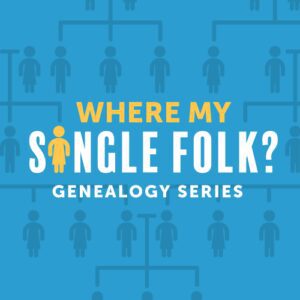
My main project, the “Where My Single Folk?” workshop series, began in June and ended in December. Each month, I hosted and moderated at least one workshop. The workshops focused on inclusive genealogy and teaching participants how to research single ancestors. Many of the workshops included information on researching marginalized subjects in genealogy, including women, people of color, and LGBTQ+ people. As a historical professional focused on Diversity, Equity, Accessibility, and Inclusion (DEAI), I was especially excited to join this project. I began my internship hosting the workshops and moderating the chat while Digital Services Manager Jenni Salamon managed the technical side. By the end of my internship, I actively promoted the workshops through email and social media, managed the PowerPoint and technical side of the workshop, hosted the events, moderated the chats, and answered questions. Luckily, I always had Archives and Libraries Director Elizabeth Woods in the workshop to help me out when the going got tough.
A large component of my internship was promotion and engagement for the workshops. I sent out direct emails to targeted organizations, developed social media posts for the series and individual workshops, and organized media opportunities. One of my favorite workshops, titled LGBTQ+ Genealogy – Inclusion of All Our Ancestors, received press coverage in Columbus Alive and the Cincinnati Edition. You can read the Columbus Alive Article here.
My supervisor, Elizabeth Woods, encouraged me to reach out to a wide variety of staff within the Ohio History Connection. I connected with several different departments, many of whom offered me projects in addition to the “Where My Single Folk?” series. Even though I work remotely, I have gained a sense of community with the Ohio History Connection. Getting to know people, despite the distance, has been a wonderful experience.
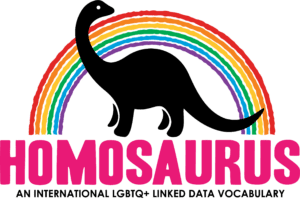
My first bonus project was working with Kieran Robertson and their project team on assembling a list of LGBTQ+ cataloguing terms in Collections. We revised Homosaurus terms and organized our own index of terms. I graded the terms for inclusion in the final list and met biweekly with the group to discuss our perspectives. Currently, our group is finalizing this list for use with the Collections department.
Next, I tackled editing and contributing to the American Indian Research Guidelines for the History Day program with Samantha Rubino. These Guidelines provide resources and information for researching American Indian history. First, Samantha and I met to discuss the project. For this project, we focused on diverse history, widespread accessibility, and easy-to-comprehend information for both students and educators. Then I opened my work playlist on Spotify and got to work editing dozens of pages. When we finished a few rounds of editing, Samantha and I joined forces to create a Google site for the Guidelines. You can check out the Guidelines here.
I also worked with Trevor Rhodes to develop activities for the Ohio as America digital textbook. I read through the textbook and began researching and writing to create my own activities. One of my activities focused on teaching students about immigrant cultures through researching holiday celebrations like Kwanzaa, Hanukkah, St. Patrick’s Day, Old Christmas, and Oktoberfest. Another activity taught students about nineteenth-century transportation through mapping the movements of immigrants through Ohio.
Finally, I wrote for the Ohio History Connection’s history blog. I composed a blog post earlier this year about inclusive genealogy, which you can read here. In 2022, I hope to write for the Teacher’s Toolbox blog as well.
As you can tell, my internship really kept me busy over the past six months. Despite the hectic schedule, I enjoyed every moment of it. My favorite aspect of this internship was the focus on learning and gaining new skills. Elizabeth prioritized helping me learn and grow as a historical professional. I explored divisions of the museum field, like development, that I would have never chosen to explore on my own. With my additional projects, I gained experience in several different skill sets, from marketing to editing. I even had the opportunity to apply for professional development funding to cover some trainings and conferences. As a broke graduate student, this funding meant the difference between attending an event and fervently hoping that I might attend next year. These events were great learning opportunities that helped me grow as an educator, scholar, and young historical professional.
Recently, Kieran Robertson offered to extend my internship and move me to a new department. I am very excited to begin working with GOHI and continue projects in other departments in January 2022. Though I’ll still be working remotely from Montana, I hope to meet more folks from the Ohio History Connection and beyond. Happy holidays!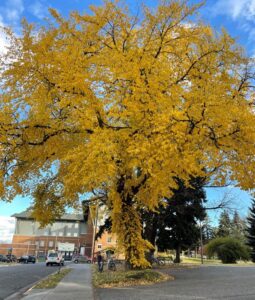
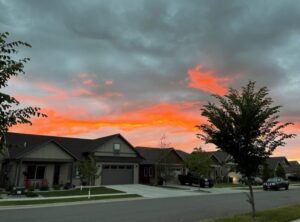
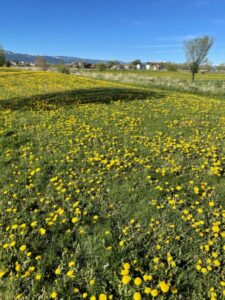
Views from Quincy’s neighborhood and university. Courtesy of Quincy Balius.